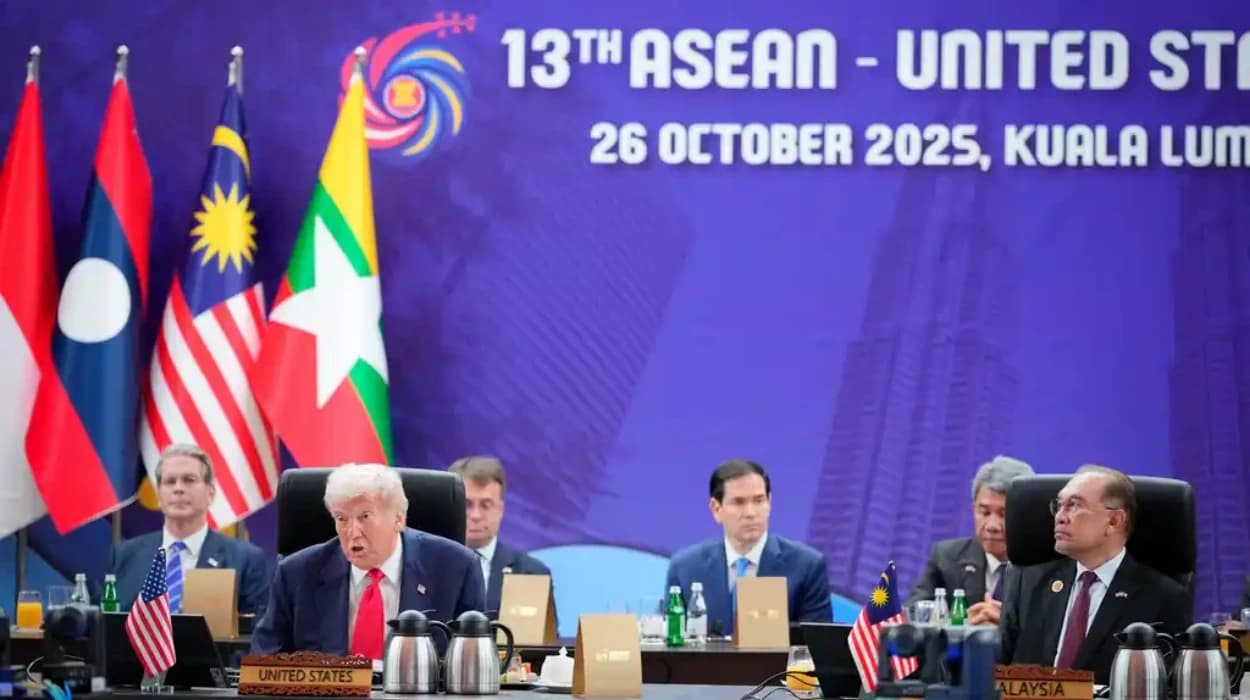President Donald Trump has successfully concluded trade
agreements with two Southeast Asian nations, enhancing economic ties and
expanding market access for U.S. businesses. These deals reflect Trump's
ongoing commitment to strengthening trade relationships in the Asia-Pacific
region.
Background on Trade Negotiations
The agreements come after months of negotiations aimed at
increasing bilateral trade and investment opportunities. The deals include
provisions to reduce tariffs, open markets to American goods and services, and
address regulatory barriers. These developments form part of an overarching
strategy by the Trump administration to diversify trade partnerships beyond
traditional allies and competitors.
Details of the Trade Deals
Sources indicate that the two nations involved are Vietnam and Indonesia, both key emerging markets in Southeast Asia with rapidly growing economies. The trade deals cover areas such as agricultural products, manufactured goods, and digital services. As confirmed by Pip Healy (E&E News),
“These agreements are expected to create new opportunities for American exporters, particularly in the agricultural and technology sectors”.
Statements from U.S. Officials
In a statement released on October 25, 2025, White House trade representative Janet Mitchell emphasized the strategic importance of these deals, stating,
"Finalizing these trade agreements demonstrates our commitment to fostering mutually beneficial economic partnerships that promote growth and job creation in the United States and our allies in Southeast Asia".
Additionally, President Trump himself commented on the agreements, highlighting their role in boosting American competitiveness in the global market. According to the report by Pip Healy, Trump said,
“These trade deals open up vital markets and ensure that American businesses and workers have the access they need to succeed internationally”.
Reaction from Southeast Asian Countries
Vietnam and Indonesia have welcomed the agreements, viewing them as instrumental to their economic development agendas. Leaders from both countries praised the deals for promising enhanced market access and stronger economic cooperation with the United States. Vietnamese Trade Minister Le Thanh Huy conveyed optimism, noting that
“The agreements lay the groundwork for deeper trade integration and investment between our countries”.
Indonesian Trade Minister Rini Pangestuti similarly
expressed positive expectations, underscoring the benefits for small and medium
enterprises and technology exchanges between the two nations.
Economic Implications
Economic analysts suggest that the trade agreements could
significantly improve the trade balance and economic ties between the United
States and Southeast Asia. The reduction in tariffs and improved regulatory
frameworks were highlighted as key factors facilitating easier trade flows and
encouraging foreign direct investment. These agreements also align with a
broader effort by the U.S. administration to counterbalance China's growing
economic influence in the region.
Wider Context of Trump’s Trade Policy
This move fits into President Trump’s larger trade agenda,
which has included renegotiating deals with Canada and Mexico, imposing tariffs
on select imports, and seeking to protect American industries. The Southeast
Asian agreements represent an effort to broaden the trade portfolio into
dynamic regional economies that offer substantial growth potential.
President Trump's finalisation of trade deals with Vietnam and Indonesia marks a significant milestone in U.S. economic diplomacy in Southeast Asia. The agreements promise to facilitate expanded trade and investment opportunities beneficial to all parties involved while reinforcing strategic economic ties in a geopolitically critical region.
